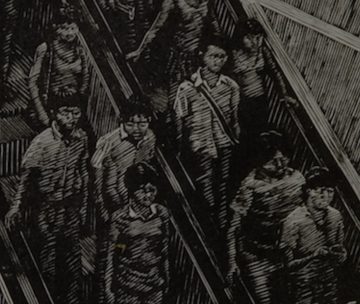James Duesterberg in The Point:
 “In the United States at this time,” Lionel Trilling wrote in 1949, “liberalism is not only the dominant but even the sole intellectual tradition.” These words are strange to read today. One cannot imagine someone writing them now and, in retrospect, they suggest a dangerous hubris. And yet it is not clear that, applied either to Trilling’s time or to ours, they are wrong.
“In the United States at this time,” Lionel Trilling wrote in 1949, “liberalism is not only the dominant but even the sole intellectual tradition.” These words are strange to read today. One cannot imagine someone writing them now and, in retrospect, they suggest a dangerous hubris. And yet it is not clear that, applied either to Trilling’s time or to ours, they are wrong.
Since the global political unraveling in 2016, liberalism has lost its voice. From the “basket of deplorables” to the “#resistance” pins to the eat-pray-love liberalism of “a thousand small sanities,” public defenses of the West’s regnant political ideology ring hollow and desperate. Read the Times or the Post, listen to politicians, sit for a second and catch the mood in the airport: the absence is in the air, not just in our language. Max Weber called twentieth-century governance the “slow boring of hard boards”: they have been bored, and so are we.
To literary critics and political theorists—those whose job it is to front-run the zeitgeist—liberalism now seems not so much an opponent to battle as a corpse to put to rest. It is something to be, at most, anatomized, if not simply buried and forgotten.
More here.
